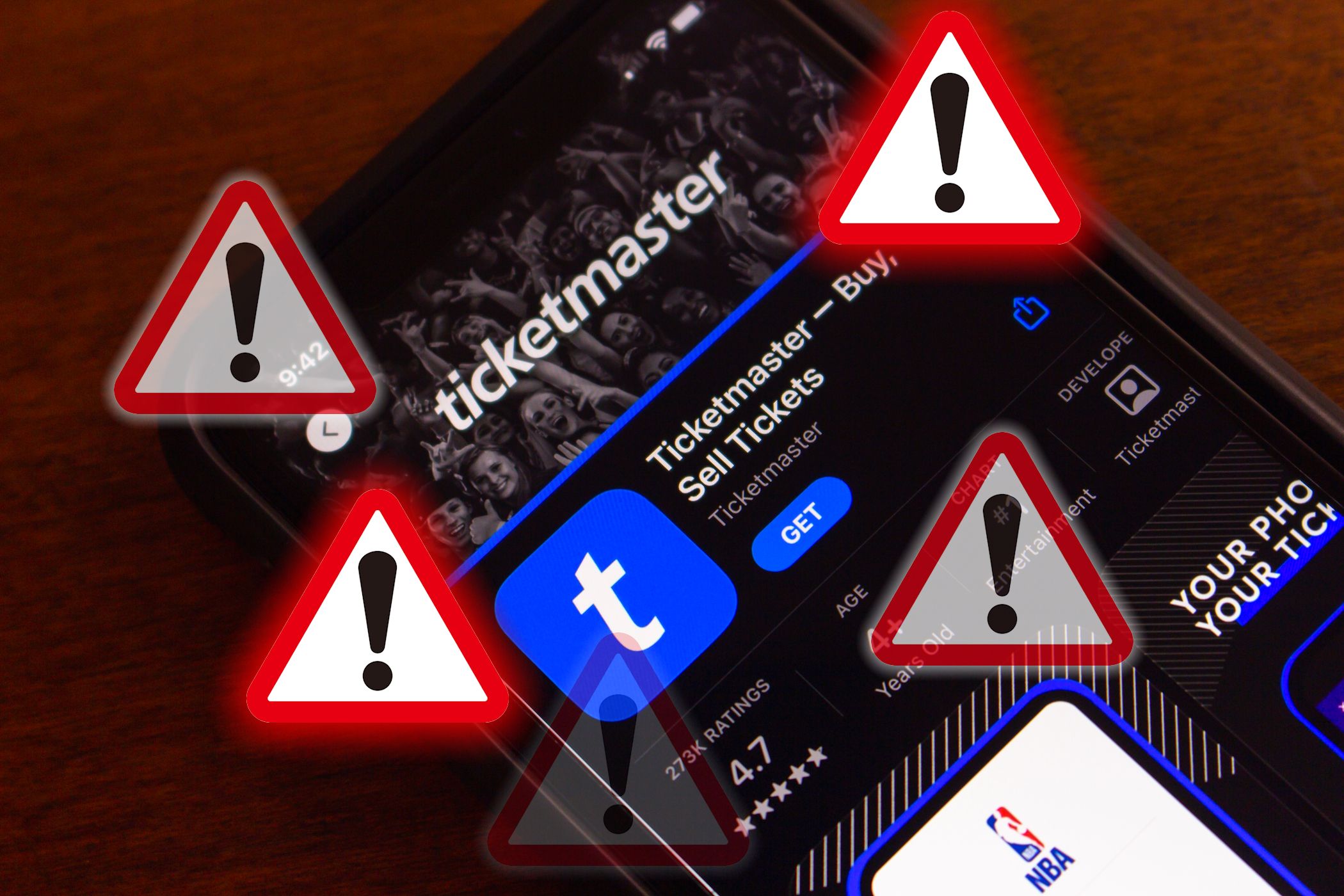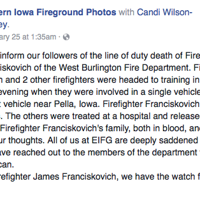Ticketmaster's Urgent Warning: Avoid Fake Ticket Sites To Protect Your Money

Table of Contents
Purchasing tickets for your favorite concert, sporting event, or theatrical performance can be incredibly exciting. However, that excitement can quickly turn to frustration and financial loss if you fall victim to a fraudulent ticket website. Ticketmaster, the world's leading ticket marketplace, issues an urgent warning: be extremely cautious when buying tickets online and protect your money from fraudulent ticket sellers. This comprehensive guide will help you navigate the online ticket market safely and avoid becoming a victim of ticket scams.
Identifying Fake Ticket Websites: Red Flags to Watch Out For
Falling prey to counterfeit ticket sites can leave you empty-handed and out of pocket. Knowing how to spot the red flags is crucial to protecting yourself. Here are some key indicators that a ticket website might be fraudulent:
Unusually Low Prices
One of the biggest red flags is a price that's significantly lower than the official price listed on Ticketmaster or other legitimate ticketing platforms. These unbelievably cheap deals are often too good to be true.
- Be skeptical of deals that seem "too good to be true." If a price is drastically lower than the average market value, it’s a major warning sign.
- Compare prices across multiple legitimate sources before purchasing. Check several reputable websites to establish a fair market price for the event and seating location.
- Prices significantly below market value could indicate counterfeit or invalid tickets. You might end up at the venue only to find your tickets are worthless.
Poor Website Design and Security
Legitimate ticket sellers invest in professional websites. Fake sites often display several warning signs of poor design and insufficient security.
- Check for unprofessional website design, including spelling and grammar mistakes. Typos and poor formatting are common on scam websites.
- Look for a secure HTTPS connection (the padlock icon in your browser's address bar). This indicates that the website uses encryption to protect your information.
- Avoid sites with generic contact information or no contact information at all. Legitimate businesses will readily provide contact details.
- Be wary of websites that look unfinished or hastily put together.
Unverified Seller Information
Transparency is key when dealing with legitimate ticket sellers. A lack of transparency about the seller’s identity should raise serious concerns.
- Check for reviews and testimonials from other buyers. (Note: even fake sites might have fake reviews, so use this information cautiously.)
- Look for a registered business address and contact information. A legitimate seller will be open about their identity and location.
- Be cautious of sites that only accept payment via wire transfer or untraceable methods. Legitimate sellers typically offer secure payment options like credit cards or PayPal.
Where to Buy Tickets Safely: Authorized Ticket Retailers
To avoid the risks associated with fake ticket websites, always purchase your tickets from reputable and authorized sources.
Ticketmaster's Official Website
Ticketmaster is a trusted and secure platform for buying tickets to a wide variety of events.
- Ticketmaster's secure website and payment processing guarantee authenticity. They employ robust security measures to protect your information.
- Ticketmaster provides buyer protection in case of event cancellations or other issues. This gives you peace of mind in case something unexpected happens.
- They offer various ticket options and flexible purchasing methods. You can find the best seats and payment options to suit your needs.
Other Reputable Ticket Resellers
While Ticketmaster is a primary source, other authorized ticket resellers exist. However, always exercise due diligence even on these platforms. Examples might include [insert examples of reputable ticket resellers specific to your region, if applicable].
- Always check seller ratings and reviews. Look for a consistent history of positive feedback.
- Verify the reseller's legitimacy with the event venue or organizer. Confirm that the reseller is officially authorized to sell tickets for the event.
- Use secure payment gateways only. Never send money via wire transfer or other untraceable methods.
What to Do if You Suspect a Scam
If you suspect you've encountered a fraudulent ticket website, act quickly to mitigate potential losses.
Report the Website
Take immediate action to prevent others from becoming victims.
- Contact your credit card company or bank immediately if you've made a payment. Dispute the charge and report the fraudulent transaction.
- File a report with the relevant consumer protection agency or law enforcement. This helps authorities track down and prosecute the scammers.
- Alert Ticketmaster of the fraudulent website. This allows them to take action to protect their customers.
Conclusion
Protecting yourself from fraudulent ticket websites requires vigilance and awareness. By carefully examining websites for red flags, using authorized ticket retailers like Ticketmaster, and reporting suspicious activity, you can significantly reduce your risk of falling victim to ticket scams. Remember, buying tickets from reputable sources is paramount for a safe and enjoyable event experience. Don't let fake ticket sites spoil your plans; choose safe and secure ticket purchasing options to protect your money and enjoy your event worry-free. Learn more about safe ticket purchasing practices on Ticketmaster's official website.

Featured Posts
-
 Tracking The Measles Outbreak Current Situation And Affected Areas In The U S
May 30, 2025
Tracking The Measles Outbreak Current Situation And Affected Areas In The U S
May 30, 2025 -
 2025 French Open Borges Defeats Injured Ruud
May 30, 2025
2025 French Open Borges Defeats Injured Ruud
May 30, 2025 -
 Vivian Jenna Wilsons Modeling Career Separating From Elon Musks Legacy
May 30, 2025
Vivian Jenna Wilsons Modeling Career Separating From Elon Musks Legacy
May 30, 2025 -
 El Regreso De Andre Agassi Mas Alla Del Tenis
May 30, 2025
El Regreso De Andre Agassi Mas Alla Del Tenis
May 30, 2025 -
 School Bus Crash Near Pella Two Injured
May 30, 2025
School Bus Crash Near Pella Two Injured
May 30, 2025
